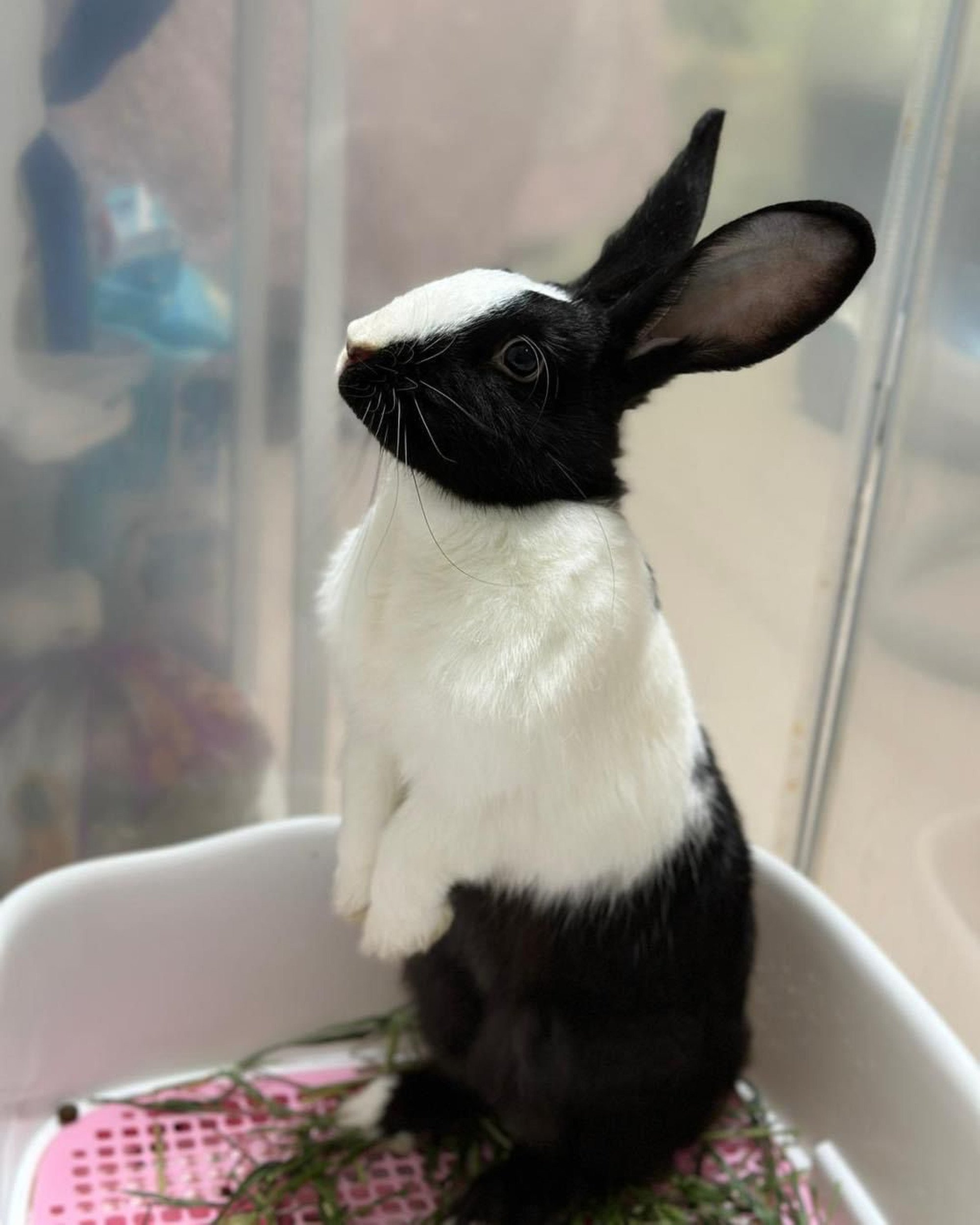“So we anticipate that after six months to a year, the abandonment of lizards will increase significantly as the Year of the Dragon passes and the Year of the Snake [comes].”

But four reptile stores in Mong Kok told the Post on Wednesday that they had not noticed a particular increase in lizard sales around the Lunar New Year holiday.
“After the pandemic, the sales situation has been poor,” said Raymond Wong, an employee at pet store Exotic Creatures. “Reptiles are not easy to care for, particularly chameleons.”
Wong said keeping reptiles required expensive equipment and that they had specific environmental demands.
Animal welfare groups said they had seen a sharp increase in the number of inquiries about taking in rabbits in recent months.
They attributed the problem to the end of interest generated by the zodiac animal last year and the trend during the Covid-19 pandemic to buy pets as people worked from home.
Charity Tolobunny said it had fielded more than 250 inquiries about taking in rabbits in the first 10 months of last year and about 60 in November and December.
It said it had taken in 178 unwanted rabbits last year and logged almost 50 inquiries about rehoming them since the start of 2024.
338,000 wowed by Hong Kong’s first Lunar New Year fireworks in 5 years
338,000 wowed by Hong Kong’s first Lunar New Year fireworks in 5 years
A spokeswoman said the calls mostly involved young rabbits, with an age range from three months to 18 months, and most of them had only been kept as pets for less than a year.
“They were highly likely to have been bought by owners around the time of the [last] Lunar New Year,” she said.
“But they may find rabbits too difficult to look after later, so they decided to abandon them.”
She added that from around last June, Tolobunny took calls daily from people who no longer wanted their pets, although in the past only one such inquiry was recorded every two to three days.
“Many people are impulsive in keeping pets,” the Tolobunny spokeswoman said. “They find them cute, and it is convenient to purchase the animals.
“However, they often fail to be aware that each animal has its own characteristics and specific care requirements.
“Eventually, they may realise they lack the ability to properly care for the pet.”
She added that rabbits needed to eat all the time, which meant they pooped a lot and their living spaces required regular cleaning.
The spokeswoman said vet expenses could also be relatively high and that prospective owners needed to understand and be prepared for potential problems before they decided to keep a pet rabbit.
Insure your dog? Hong Kong pet owners tangled in policy fine print as costs rise
Insure your dog? Hong Kong pet owners tangled in policy fine print as costs rise
Shirley Tong Nga-yin, chairwoman of the Hong Kong Rabbit Society, said apart from the surge in ownership during the Year of the Rabbit, the growing number of the animals being abandoned could also be down to an increase in the buying of the pets over the Covid-19 pandemic from 2020 to 2022.
“Many people found rabbits cute and bought them for their children,” Tong said. “Some adults who needed to work from home during the pandemic would also purchase rabbits to help kill the time.
“But they could soon come up with the thought of abandoning them after keeping the animals for a short period of time.”
Tong added that, as the city went back to normal life last year and people returned to commuting and work in offices, some owners said they had “no time for caring”.
She said the society had already hit its maximum of 100 rabbits in care and that there were 30 others on a waiting list, which could stretch out to a year.
The story was the same at other animal care organisations.
The Hong Kong Society for the Prevention of Cruelty to Animals said it had taken in 45 rabbits from the start of February 2023 to February 9 this year, but could not immediately give numbers for previous years.
Agriculture, Fisheries and Conservation Department figures showed that 24 rabbits were surrendered by their owners last year, a jump from six in 2022 and four in 2021.




